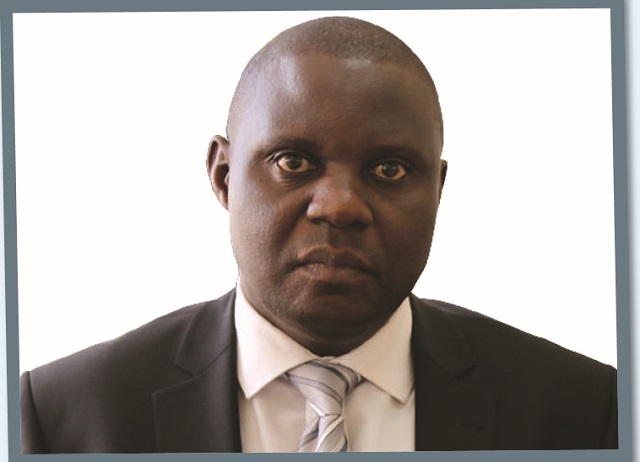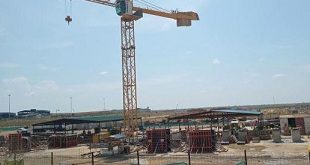
Joseph Nkandu is the executive director of National Union of Coffee Agribusiness and Farm Enterprises (NUCAFE). He spoke to the Independent’s Agnes E Nantaba about the future outlook of Uganda’s coffee industry.
What are the key elements in your management philosophy as a manager?
My leadership style is more of a compassionate, which pushes me to get out of my way to not only put myself in someone’s shoes but to lead by example. It also enables me to understand what other members of my team go through. And as much as I would have wished to perfectly handle every task, I also delegate some work.
What is your assessment of Uganda’s coffee sector at the moment?
Uganda’s coffee industry can very well be evaluated not in isolation with other coffee producing countries within Africa and outside the continent. If one is to compare Uganda’s coffee performance within Africa, it is quite on the positive side. In the last ten years with the exception of 2015, Uganda has been the leading coffee exporter from the continent to Europe. Uganda has maintained its position as Africa’s second largest producer of coffee with close to 4 million bags second to Ethiopia with 6 million bags annually. However, our competitors such as Brazil, Colombia and Central America – who were at the same level in terms of production with Uganda 35 years ago– have performed better. Uganda’s production has stagnated. This is not to say that we have not had challenges ranging from wars to diseases and pests. But it should be noted that some of these countries registered growth in coffee production despite experiencing such challenges.
What explains stagnation in the country’s coffee production?
There are various issues that have affected our production, some historical in nature and others related to policy. As a country, we have not taken steps to have a comprehensive policy that is shared by all stakeholders so that we move in the same direction. It is until recently that a national coffee policy was put in place, laying a foundation upon which we can now anchor the necessary interventions. At the same time, Ugandans also downplay the role of farmer organisations or cooperatives in the growth of the industry yet they are critical vehicles in aspects of information dissemination, farmer trainings and ensuring quality coffee is created at the farm level.
How are you ensuring that farmers are part of the coffee value chain in order to earn high income?
We work through a business model dubbed ‘the famer ownership model’ and with it, farmers are organised into associations per Sub County in the various coffee growing regions. Through these associations, they assume more roles and responsibilities but not losing track of what they are doing. The intention is for the farmer not to sell coffee before value addition or on trees but move steps in the coffee value chain from harvesting, drying, grading to roasting and packaging. By doing that, the coffee is moving to the profitable nodes of the value chain and therefore earning more to the farmer. But for us to ensure that, NUCAFE has made big investments in factories where it is transformed to a level that is profitable.
This has happened and has actually paid off in transforming farmers through better incomes. As partners in the coffee sector, what is your strategy to ensure that the country achieves its target of 20 million 60 kg bags of coffee by 2020?
We are guiding our famers within their own reach on how to achieve maximum output. We have coffee nurseries to enable them access reliable and clean planting materials, in addition to encouraging them to be innovative. We are now urging farmers to move away from the spacing of 3 by 3 meters to 3 by 1 meter between rows of coffee and trees respectively, because not so many farmers have access to large chunks of land. With this strategy, instead of having 450 Robusta plants per acre, a farmer will have 1,333 plants. With all factors remaining constant, a farmer with such arrangement will have more coffee produced. Climate change is with us so irrigation is inevitable. Ugandans consume only 3 % of the locally produced coffee.
What explains the low consumption trend and how are you working to improve that?
Coffee is regarded as a very expensive beverage in Uganda but we have to deliberately segment our people to ensure that this trend improves. For instance, as the coffee gets to NUCAFE for roasting, farmers go back with some coffee to taste at home and this leads to increase in consumption right from the farm. We have also gone ahead to put up institutions such as the Agribusiness incubator with Makerere University where we intend to revise the agricultural curriculum to incorporate latest coffee practices. Also, we are moving into a whole franchising model to open more coffee shops in the different parts of the country to help boost domestic consumption.
What is your projection of Uganda’s coffee sector in the next few years?
Uganda’s coffee export earnings will have moved from an average of about $500 million to more than $2 billion.
****
 The Independent Uganda: You get the Truth we Pay the Price
The Independent Uganda: You get the Truth we Pay the Price



